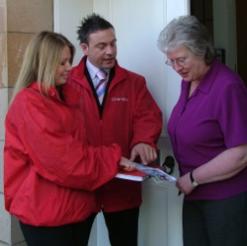With so few people prepared to defend the charity brand over the summer, Lisa Clavering wonders who would still want to be a fundraiser?
We have been under attack this summer, with a multitude of press stories decrying fundraising tactics and practice.
Predictably, we fundraisers were afire with outrage and despair in roughly equal measure. We wrung our hands, we pondered on social media and over coffees and beers about what was to be done. We were all in agreement that, within this deluge of muck-throwing, there were key elements of bad practice that did need addressing. We also all agreed that this was not representative of the sector as a whole. Those charities directly featured gave contrite apologies and promised to do better. But as a collective voice, we were pretty quiet. Disappointingly quiet, I thought. The silence was overwhelming. “Charities” was becoming a dirty word.
And it continued. We wondered who would be next. Colleagues in fundraising agencies were made redundant as call centres were forced to close. I’ve had rows with friends who told me I “care too much” about what certain newspapers say, and that “it doesn’t really matter”.
We wondered who would speak up, where our leadership would come from. Who would stand up to remind the world that good fundraising creates the opportunity for millions of people to support causes that matter to them, and get great personal enjoyment from doing so? These charities save lives; they provide services that no-one else is providing. Fundraising is not the enemy – bad fundraising is.
So, personally, I was delighted to see a letter from 17 charity CEOs, co-ordinated by the Institute of Fundraising in the Sunday Times. It promised strengthened codes of practice and a call for a new and independent regulator. It defended our need and right to fundraise, but the tone was apologetic. Some felt, too apologetic, not strong enough. Personally, I understood that argument, but couldn’t see how it could be otherwise. Having stayed silent for so long as a sector, with no frontline response to clarify that the instances the press had highlighted were not a reflection of overall practices, it felt to me like all we had left was to apologise and start to rebuild trust. The opportunity to do more, to come out fighting, had been and gone months ago.
We’ve now seen the outcomes of the IoF’s review of the codes and the Etherington Review into regulation. Some strong recommendations have been made, many of which feel really positive in terms of promoting best practice and winning back public trust. The direction of the Etherington Review – for fundraising to have donors at its heart, to focus on relationships with them – will resonate with most fundraisers. The practicalities of a Fundraising Preference Service, and how this would be managed in a way that allows those relationships to continue, will now need some discussion, but the principle behind this recommendation feels sound.
It’s an unsettling time. It is, of course, vital that poor practice is dealt with, but it’s felt a bit bleak. I’ve never known morale to be so low in the sector; a friend was told she “should be ashamed of herself ” by a stranger who learned she was a fundraiser. Most people I know in the sector enjoy their work and feel that they are making a difference to the world in their own, small way. It’s hard to suddenly be seen as an enemy. Time will tell what impact this all has on job satisfaction and staff retention.
Rumours abound that newspapers are trying to “infiltrate” charities, and looking for more stories. Perhaps understandably, many charities have become more meek in their fundraising as they seek to avoid rocking the boat or having their own name drawn into the mess.
I don’t know what’s going to happen. I sincerely hope that, when the dust settles, we are able to stand firm and united to defend our sector as a whole, and to champion the amazing work that our fundraising makes possible.
Lisa Clavering is a charity fundraiser








